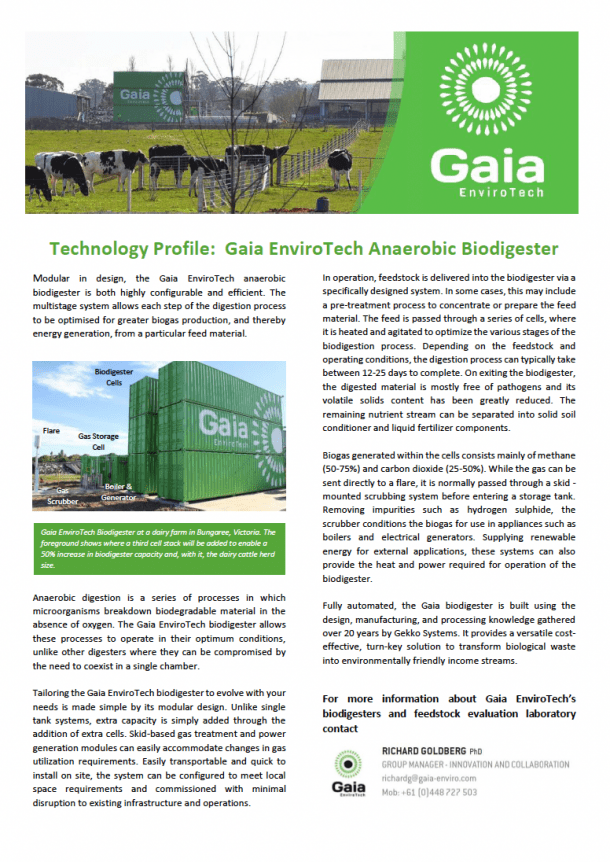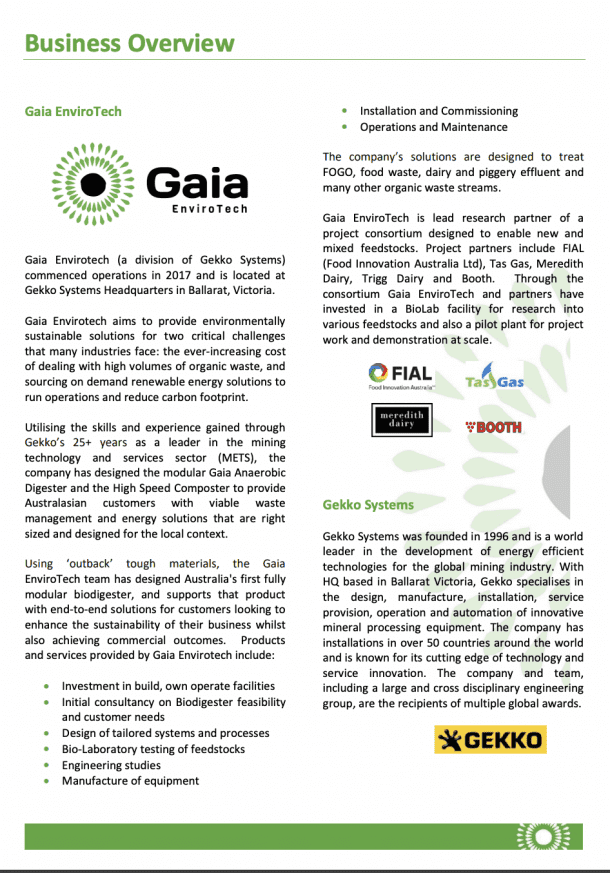Minister for Energy, Environment and Climate Change, Lily D’Ambrosio, has recently announced that Gaia EnviroTech has been awarded funding for the establishment of commercially viable Anaerobic Digestion (AD) for organic waste.
This project is supported by the Recycling Victoria Research and Development Fund – Organics. The Fund is delivered by Sustainability Victoria under the Victorian Government’s circular economy plan, Recycling Victoria: a new economy.
The fund which supports businesses and research organisations to research and develop innovative ways to improve processes, performance, or systems of existing recycled organics products. This fund aims to enhance the market for recycled organics.

Gaia EnviroTech provides environmentally sustainable and scalable solutions for organic waste disposal with their modular, multi-stage Anaerobic Biodigester and the Rapid Composter. These systems have been designed to deliver onsite renewable power generation for the displacement of fossil fuels from locally generated waste streams. Combining their commercial experience with the expert research capabilities of RMIT and Federation University, they aim to:
- Demonstrate a method for separating FOGO into liquid and fibrous components that can be processed by AD and composting, respectively.
- Establish a method for co-processing anerobic digestate with composting material to produce soil augmentation/fertilizers products tailored to local soil conditions.
- Build a model for determining optimum microgrid network topologies for the deployment of energy generated from anerobic biodigestion systems in conjunction with other energy sources and evaluate the benefits that transactive energy trading within the microgrids.
Doing so will provide a pathway for the establishment of commercially viable AD systems in Australasia for the generation of renewable energy from FOGO and other organic waste streams.
Whilst anaerobic biodigestion is a proven technology for producing renewable energy from organic waste streams overseas, two key barriers currently prevent AD from being commercially viable and affordable in Australia. These are the ability to monetise digestate and optimise the value of the renewable energy generated. This project aims to provide commercially viable solutions to these barriers that will establish positive businesses cases for the widespread adoption of AD. In addition, it aims to prove the feasibility of a technique for pre-processing Food Organics and Green Organics (FOGO) material for treatment by existing AD and rapid composting systems, thereby enabling greater adoption of waste-to-energy technologies.







Downloadthe Diary Effluent Case study
The system in this case study was installed in November 2018 as a 12-month research and development project to establish viability of an anaerobic digestion plant designed to convert dairy effluent to energy and minimise odour.
You have Successfully Subscribed!